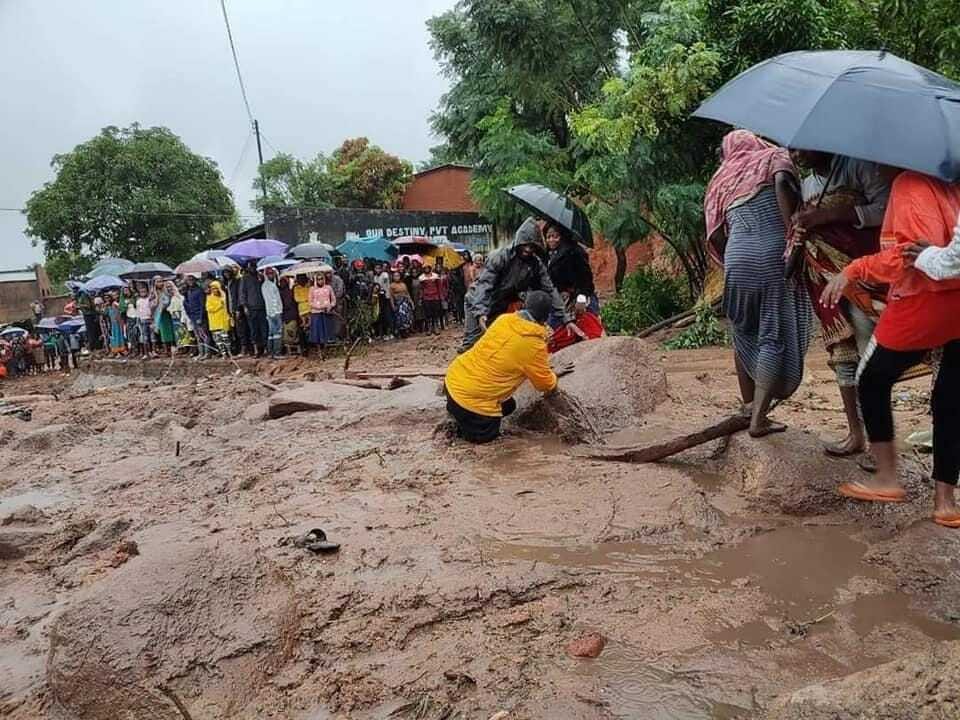
Malawi-Tropical Cyclone FREDDY is weakening but still poses a threat to most parts of southern Malawi with torrential rains and windy conditions, according to the latest report from the Department of Climate Change and Meteorological Services (DCCMS).
The report states that heavy flooding and damaging winds remain a significant risk in the affected areas, including Nsanje, Chikwawa, Mulanje, Thyolo, Phalombe, Chiradzulu, Mwanza, Blantyre, Zomba, and Neno. However, the threat could extend to Machinga and Mangochi districts.
Although an improvement in weather conditions over southern Malawi is expected from Wednesday evening, the northern and central areas will remain under the influence of the Congo Airmass, causing locally heavy rains.
Rainfall feedback from 8 am Monday to 8 am Tuesday shows that some areas received significant amounts of rainfall, including Nkhulambe in Phalombe with 458.6 millimetres, Fatima Nsanje with 343.4 millimetres, Phalombe with 297 millimetres, Ngabu with 272.3 millimetres, Thiransembe in Chikwawa with 259.7 millimetres, Blantyre Forestry with 194.8 millimetres, and Therere in Chikwawa with 192.1 millimetres.
The DCCMS advises people in the affected areas to move to higher ground immediately and follow evacuation orders when issued.
Persistent rains and strong winds can cause infrastructure, houses, and pit latrines to collapse, and people should be on high alert.
Falling trees and power lines should also be taken into consideration, and it is best to avoid rivers and streams as they may rise rapidly and become dangerous during heavy rains. Driving in strong winds can also be hazardous.
The DCCMS says will continue to monitor the movement and strength of Cyclone FREDDY and communicate potential impacts to the nation accordingly.